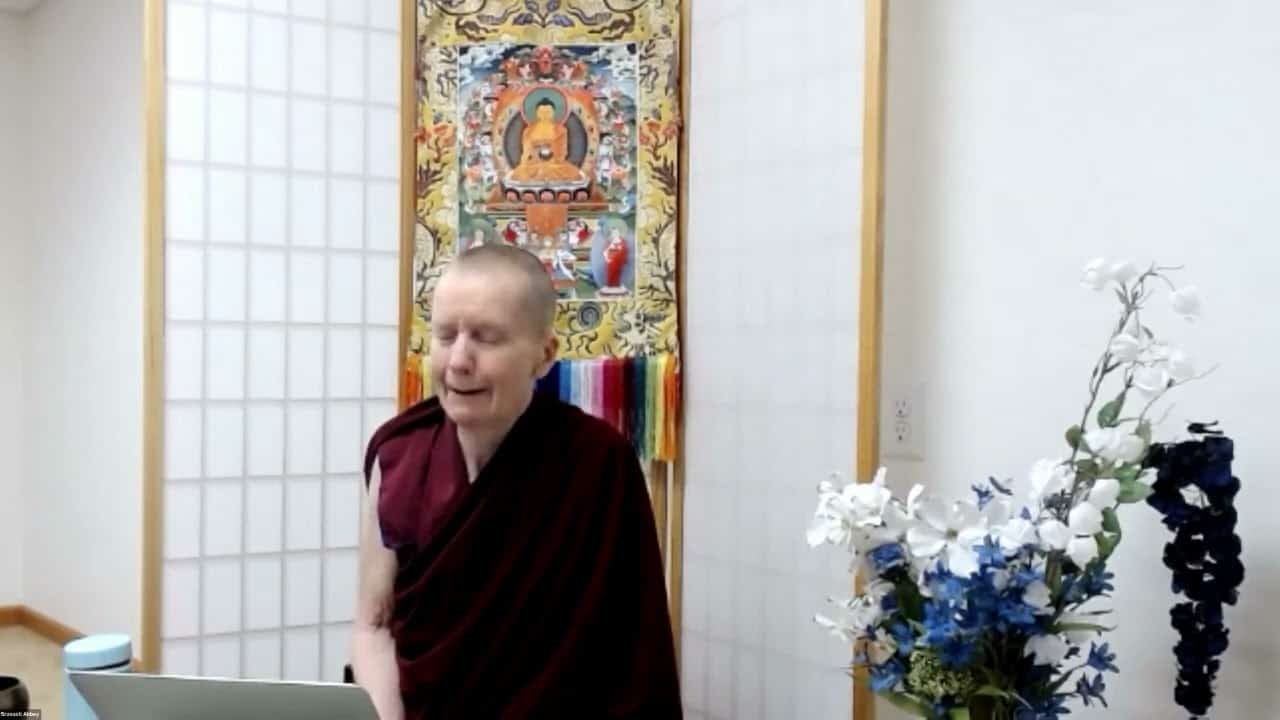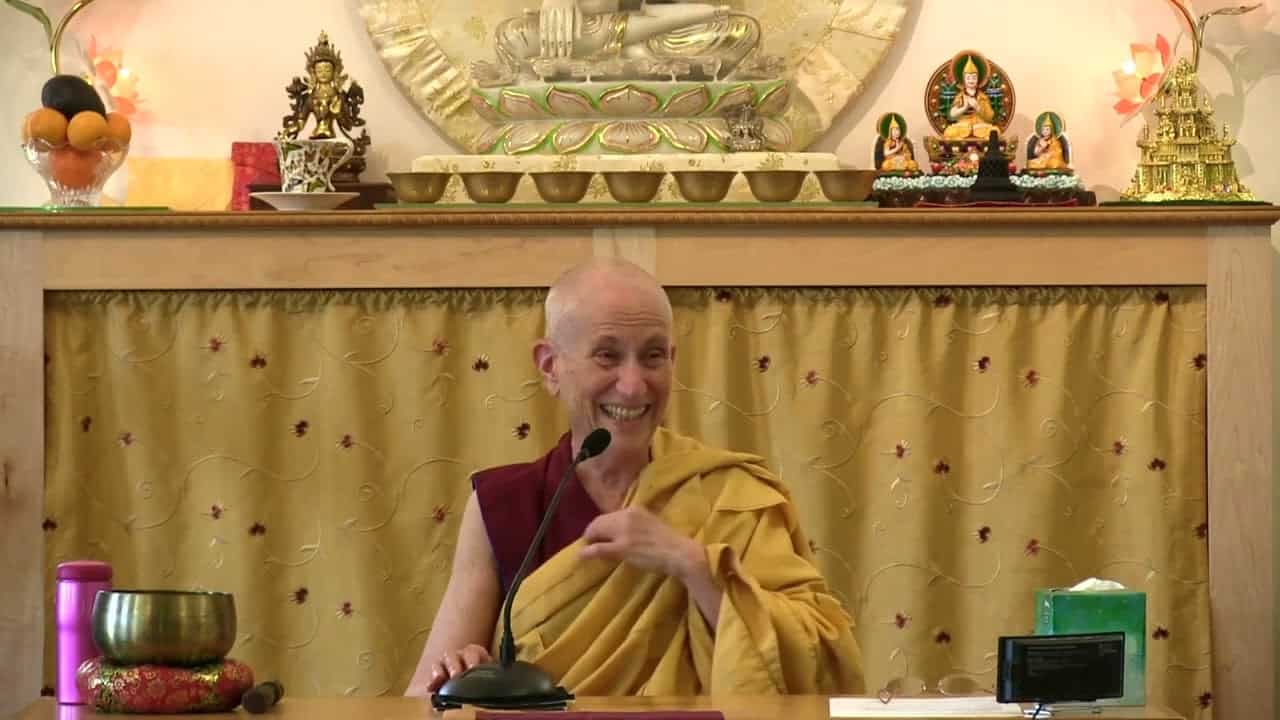Freedom from cyclic existence
76 Samsara, Nirvana, and Buddha Nature
Part of an ongoing series of teachings (retreat and Friday) based on the book Samsara, Nirvana, and Buddha Nature, the third volume in The Library of Wisdom and Compassion series by His Holiness the Dalai Lama and Venerable Thubten Chodron.
- Four attributes of true cessation
- Three higher trainings
- Importance of wisdom combined with concentration
- Overcoming laxity and restlessness to develop concentration
- Role played by mindfulness and introspective awareness
- Need to develop correct understanding of Buddhist worldview
- Paths of accumulation, preparation, seeing, meditating and no more learning
- Explanation of the paths for sravaka vehicle
- Progression of stream-enterer, once-returner, nonreturner and arhat
Samsara, Nirvana, and Buddha Nature 76: Freedom from Cyclic Existence (download)
Contemplation points
- What does satisfaction mean in a Dharma sense?
- The three higher trainings are necessary for attaining liberation. How do you practice them in daily life? If you don’t yet practice them, how can you integrate these practices into your daily life?
- Consider the four aspects of true cessation: 1) cessation of the continuum of afflictions, their seeds, and the karma that causes rebirth, 2) true peace, 3) magnificent, and 4) freedom. Spend some time with each of these, thinking of how they would affect your experience of the world in and around you.
- Describe the Dharma jewel in your own words. Why is it the Dharma Jewel in which practitioners are actually taking refuge?
- How do restlessness and laxity prevent concentration? Make examples from your own experience. How do mindfulness and introspective awareness counter these hindrances and why is it we start to develop these through our efforts to maintain good ethical conduct?
- Why is it so important to have a good understanding of the Buddhist worldview before entering any one of the three vehicles (hearer, solitary realizer, or bodhisattva)? How do purification and the creation of merit prepare the mind for deeper understanding of the path and help keep us from getting stuck in our practice?
- How would your life be different if you had the stable aspiration for liberation day and night? How would the feeling in your mind be different? How would your actions be different? How would you spend your time? Now imagine what it would be like for bodhicitta to arise spontaneously in relation to any and all sentient beings. Really take some time with each of these, thinking about how specific experiences in your life would be different.
- What are the five paths? What is the demarcation for the progression from the first to the fifth paths?
Venerable Thubten Chodron
Venerable Chodron emphasizes the practical application of Buddha’s teachings in our daily lives and is especially skilled at explaining them in ways easily understood and practiced by Westerners. She is well known for her warm, humorous, and lucid teachings. She was ordained as a Buddhist nun in 1977 by Kyabje Ling Rinpoche in Dharamsala, India, and in 1986 she received bhikshuni (full) ordination in Taiwan. Read her full bio.


